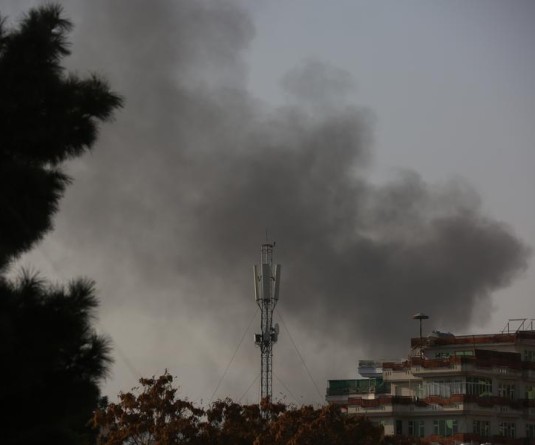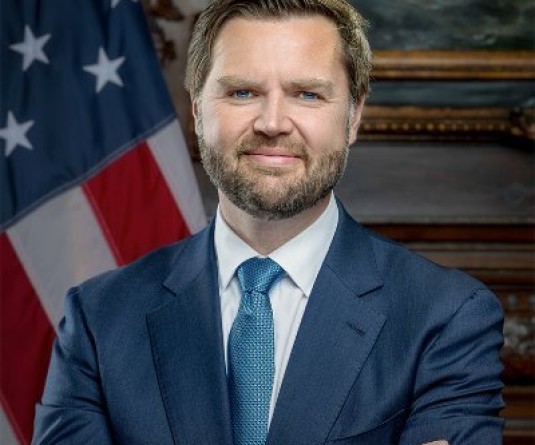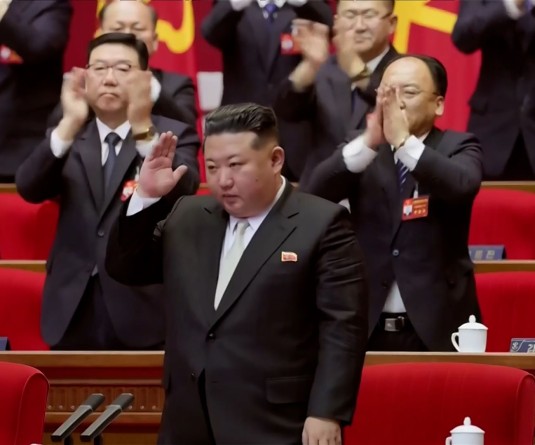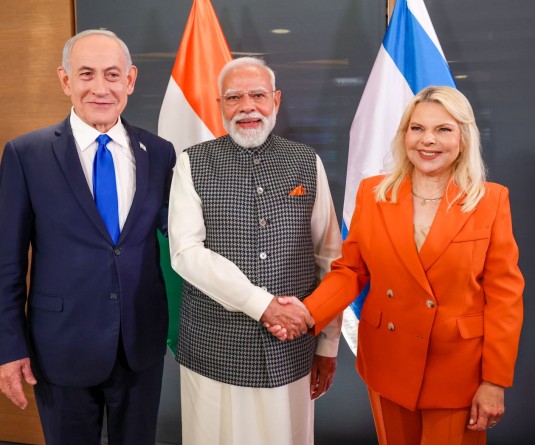
Communist party members applause as Chinese President Hu Jintao, left, walks to deliver a speech during at a celebration of the Communist Party’s 90th anniversary at the Great Hall of the People in Beijing, China on Friday, July 1. Celebrating the Communist Party’s 90th anniversary Friday, Hu said that its ability to adapt made China affluent and powerful and that the party must fight corruption to retain public support and continue its uncontested rule. (AP Photo)
BEIJING, July 1 (AFP): Chinese President Hu Jintao warned the ruling Communist Party faced severe "growing pains" as it turned 90 on Friday and that corruption, and alienation from China's people, could erode public support. In a speech on the anniversary of its 1921 founding, Hu lauded the party for leading China's rebirth but made clear that pitfalls lie ahead as it continues to strike an ungainly balance between economic openness and political rigidity.
"The entire party must clearly see that, with the deep changes in the world, national and party situations, we face many new problems and challenges to improve the party's leadership and rule and to strengthen the ability to resist corruption and risks," Hu said. Hu, who has been head of the party for nearly a decade, singled out corruption -- typically named in opinion polls as a top source of public discontent -- as a clear and present danger to the party's ruling legitimacy.
The fight against corruption is the key to "winning or losing public support and the life or death of the party," he said. "Corruption will cost the party the support and trust of the people," the Chinese president warned. Hu delivered the speech in a ceremony in the Great Hall of the People -- the Stalinist-style monolith at the heart of Beijing -- that was attended by thousands of party leaders and members and broadcast live on state television.
The party has sought to fan enthusiasm in the lead-up to the anniversary through an officially directed outpouring of nostalgia for China's Communist past. The propaganda blitz has included a stream of laudatory media articles, the singing of "red" songs from Communist China's early years, museum exhibitions and the release of a film glorifying the birth of the party. China also launched a key high-speed rail link linking Beijing and Shanghai, and opened the world's longest cross-sea bridge just ahead of the party fete.
But the campaign is widely viewed by political analysts as a facade to conceal the insecurities of a party that has jettisoned the ideology of its name and is struggling to deal with a range of complex problems without the flexibility that democracy affords. These include an accelerating wealth gap, horrific environmental degradation, demands for autonomy from millions-strong ethnic minorities, and regular reports of corrupt and abusive officials.
"China’s Communist Party at 90 is a bit like many 90-year-olds: increasingly infirm, fearful, experimenting with ways to prolong life, but overwhelmed by the complexities of managing it," China scholar David Shambaugh wrote in a commentary piece. Hu conceded that "the whole party is confronted with growing pains," warning that many party officials were "incompetent" and "divorced from the people." "It is more urgent than ever for the party to impose discipline on its members," he said.
The practice of securing lucrative party and government positions through connections and backroom deals is considered to be widespread. Hu vowed a more merit-based personnel system and a drive to recruit talented young members into the 80-million-strong party, about 75 percent of whose card-holders are more than 35 years old. "Young people represent the future of both China and its people. They also represent the future and hope of the party," Hu said.
The CCP was established in July 1921 in Shanghai as the brainchild of a dozen intellectuals, and took power in China in 1949 after defeating the rival Nationalists in a long and bloody civil war. But the country was then plunged into nearly 30 years of chaos due to the misguided policies of revolutionary leader Mao Zedong that triggered political purges, famine, and social upheaval that left tens of millions died.
"The entire party must clearly see that, with the deep changes in the world, national and party situations, we face many new problems and challenges to improve the party's leadership and rule and to strengthen the ability to resist corruption and risks," Hu said. Hu, who has been head of the party for nearly a decade, singled out corruption -- typically named in opinion polls as a top source of public discontent -- as a clear and present danger to the party's ruling legitimacy.
The fight against corruption is the key to "winning or losing public support and the life or death of the party," he said. "Corruption will cost the party the support and trust of the people," the Chinese president warned. Hu delivered the speech in a ceremony in the Great Hall of the People -- the Stalinist-style monolith at the heart of Beijing -- that was attended by thousands of party leaders and members and broadcast live on state television.
The party has sought to fan enthusiasm in the lead-up to the anniversary through an officially directed outpouring of nostalgia for China's Communist past. The propaganda blitz has included a stream of laudatory media articles, the singing of "red" songs from Communist China's early years, museum exhibitions and the release of a film glorifying the birth of the party. China also launched a key high-speed rail link linking Beijing and Shanghai, and opened the world's longest cross-sea bridge just ahead of the party fete.
But the campaign is widely viewed by political analysts as a facade to conceal the insecurities of a party that has jettisoned the ideology of its name and is struggling to deal with a range of complex problems without the flexibility that democracy affords. These include an accelerating wealth gap, horrific environmental degradation, demands for autonomy from millions-strong ethnic minorities, and regular reports of corrupt and abusive officials.
"China’s Communist Party at 90 is a bit like many 90-year-olds: increasingly infirm, fearful, experimenting with ways to prolong life, but overwhelmed by the complexities of managing it," China scholar David Shambaugh wrote in a commentary piece. Hu conceded that "the whole party is confronted with growing pains," warning that many party officials were "incompetent" and "divorced from the people." "It is more urgent than ever for the party to impose discipline on its members," he said.
The practice of securing lucrative party and government positions through connections and backroom deals is considered to be widespread. Hu vowed a more merit-based personnel system and a drive to recruit talented young members into the 80-million-strong party, about 75 percent of whose card-holders are more than 35 years old. "Young people represent the future of both China and its people. They also represent the future and hope of the party," Hu said.
The CCP was established in July 1921 in Shanghai as the brainchild of a dozen intellectuals, and took power in China in 1949 after defeating the rival Nationalists in a long and bloody civil war. But the country was then plunged into nearly 30 years of chaos due to the misguided policies of revolutionary leader Mao Zedong that triggered political purges, famine, and social upheaval that left tens of millions died.
Jintao hail party’s success
BEIJING, July 1 (AP): Celebrating the Communist Party's 90th anniversary Friday, Chinese President Hu Jintao said that its ability to adapt made China affluent and powerful and that the party must fight corruption to retain public support and continue its uncontested rule. In a 90-minute nationally televised speech, the political highlight of several events marking the party's founding, Hu said that decades of economic growth are transforming Chinese society, producing conflicts that the party must navigate to preserve stability. He glossed over the radical campaigns and policies that led to tens of millions of deaths in the first decades of communist rule. But he said the party endured because it learned from its mistakes. "In some historical periods, we once made mistakes and even suffered severe setbacks, the root cause of which was that our guiding thought then was divorced from China's reality. Our party managed to correct the mistakes by the strength of itself and the people, rose up amid the setbacks and continued to go forward victoriously," Hu told the several thousand party stalwarts inside the Great Hall of the People.
Unlike recent years when party anniversaries were largely for party members, this year's celebrations have sought to include and excite the public. Events have included a star-studded feature film about the party's founding, a torrent of documentaries and serialized historic dramas on television and mass sing-a-longs of "red" songs. The purpose is to inspire patriotism and loyalty to the party and reinforce a now well-practiced narrative: that after a century of civil war, dynastic collapse and foreign invasion, the Communist Party has returned China to greatness and restored its rightful place as a world leader. Chinese leaders have increasingly turned to grand public spectacles like the 2008 Beijing Olympics and the 60th anniversary of the People's Republic in 2009 to bolster the party's legitimacy as economic growth has brought social ills like a rich-poor gap and rampant corruption. "In some ways we can see that with the Communist Party that they are trying to elevate this to a sacred event," said Jeffrey Wasserstrom, a historian at the University of California, Irvine.
The need to find new rationales for rule has grown as the party itself has evolved from an underground group of hardcore revolutionaries to a vast organization of 80 million members bound together more by ambition, power and connections than ideology. Many among the public laud the party leadership for steering China to a more prosperous today yet vilify local officials as venal, at best indifferent and at worst abusive. Chinese leaders have called corruption a life-and-death struggle for over a decade. Hu also sounded the alarm. "If corruption does not get solved effectively, the party will lose the people's trust and support. The entire party should stay alert and fully appreciate the long-term complexity and arduousness of the fight against corruption, and make more efforts in fighting corruption and building a clean government," Hu said. Like his predecessors and in keeping with his own nine years in power, Hu, however, did not call for institutional reforms, like creating an investigating entity independent from the party, that many experts say are necessary to rooting out endemic graft. Similarly, though Hu several times mentioned the need for political reform, he did so in formulaic language that so far has not heralded a loosening of the party's grip on almost all public institutions.
BEIJING, July 1 (AP): Celebrating the Communist Party's 90th anniversary Friday, Chinese President Hu Jintao said that its ability to adapt made China affluent and powerful and that the party must fight corruption to retain public support and continue its uncontested rule. In a 90-minute nationally televised speech, the political highlight of several events marking the party's founding, Hu said that decades of economic growth are transforming Chinese society, producing conflicts that the party must navigate to preserve stability. He glossed over the radical campaigns and policies that led to tens of millions of deaths in the first decades of communist rule. But he said the party endured because it learned from its mistakes. "In some historical periods, we once made mistakes and even suffered severe setbacks, the root cause of which was that our guiding thought then was divorced from China's reality. Our party managed to correct the mistakes by the strength of itself and the people, rose up amid the setbacks and continued to go forward victoriously," Hu told the several thousand party stalwarts inside the Great Hall of the People.
Unlike recent years when party anniversaries were largely for party members, this year's celebrations have sought to include and excite the public. Events have included a star-studded feature film about the party's founding, a torrent of documentaries and serialized historic dramas on television and mass sing-a-longs of "red" songs. The purpose is to inspire patriotism and loyalty to the party and reinforce a now well-practiced narrative: that after a century of civil war, dynastic collapse and foreign invasion, the Communist Party has returned China to greatness and restored its rightful place as a world leader. Chinese leaders have increasingly turned to grand public spectacles like the 2008 Beijing Olympics and the 60th anniversary of the People's Republic in 2009 to bolster the party's legitimacy as economic growth has brought social ills like a rich-poor gap and rampant corruption. "In some ways we can see that with the Communist Party that they are trying to elevate this to a sacred event," said Jeffrey Wasserstrom, a historian at the University of California, Irvine.
The need to find new rationales for rule has grown as the party itself has evolved from an underground group of hardcore revolutionaries to a vast organization of 80 million members bound together more by ambition, power and connections than ideology. Many among the public laud the party leadership for steering China to a more prosperous today yet vilify local officials as venal, at best indifferent and at worst abusive. Chinese leaders have called corruption a life-and-death struggle for over a decade. Hu also sounded the alarm. "If corruption does not get solved effectively, the party will lose the people's trust and support. The entire party should stay alert and fully appreciate the long-term complexity and arduousness of the fight against corruption, and make more efforts in fighting corruption and building a clean government," Hu said. Like his predecessors and in keeping with his own nine years in power, Hu, however, did not call for institutional reforms, like creating an investigating entity independent from the party, that many experts say are necessary to rooting out endemic graft. Similarly, though Hu several times mentioned the need for political reform, he did so in formulaic language that so far has not heralded a loosening of the party's grip on almost all public institutions.






